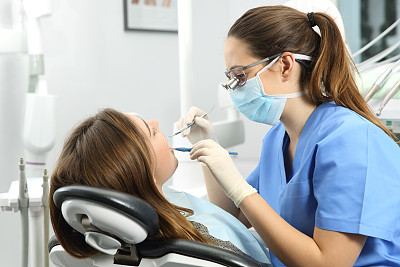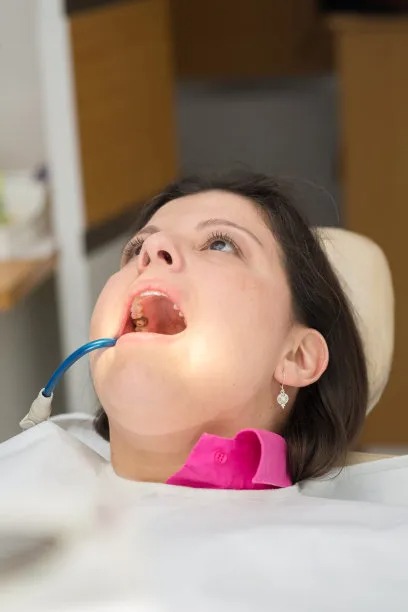Summary: Understanding periodontal disease is critical for maintaining good oral health and overall wellbeing. This article delves into the risk factors associated with periodontal disease, which include genetic predisposition, lifestyle choices, and systemic conditions. Each of these factors not only contributes to the onset of periodontal disease but also has implications for broader health issues such as heart disease and diabetes. By examining these aspects in detail, we aim to inform readers about the complexities of periodontal disease and encourage them to adopt preventative measures for their oral health. The content presented herein serves as a guide to understanding how to mitigate risks and maintain a healthier lifestyle.
1. Genetic Factors and Their Role

Genetics play a significant role in the susceptibility of individuals to periodontal disease. Certain genetic markers can predispose individuals to inflammation and immune responses that can accelerate tissue destruction in the gums. Specifically, studies indicate that individuals with hereditary factors may experience more severe periodontal conditions than those without such predispositions.
Furthermore, identifying these genetic risk factors can empower individuals to seek preventive care. For instance, if a family history of periodontal disease exists, individuals can prioritize routine dental visits and adopt more rigorous oral hygiene practices to minimize their risk.
Finally, genetic testing may soon become a viable option for assessing the risk of developing periodontal disease, allowing for personalized intervention strategies. Understanding one’s genetic predisposition can be pivotal in preventing the disease and preserving oral health.
2. Lifestyle Choices and Their Effects
Lifestyle choices, such as diet and smoking, significantly influence the risk of developing periodontal disease. Diets high in sugar and low in nutrients can lead to dental plaque build-up, which is a major contributor to gum disease. Consuming a balanced diet, rich in vitamins and minerals, is crucial for maintaining healthy gums.
Moreover, smoking is a leading risk factor for periodontal disease. Smokers not only have a higher likelihood of developing gum issues but also tend to have more severe forms of the disease. The harmful chemicals in tobacco can impair blood flow to the gums, hindering the healing process and making it harder to fight infections.
Adopting a healthier lifestyle can significantly reduce the risk of periodontal disease. Regular exercise, adequate hydration, and a well-balanced diet are essential components that contribute to both oral health and overall wellbeing.
3. Systemic Conditions and Their Impact
Systemic health conditions such as diabetes, cardiovascular disease, and autoimmune disorders have a direct relationship with periodontal disease. Individuals with diabetes are particularly vulnerable because high blood sugar levels can lead to an increased risk of infection, making it easier for periodontal pathogens to flourish.
Additionally, periodontal disease can exacerbate existing systemic conditions, creating a vicious cycle that undermines both oral and overall health. Patients with heart disease may find their condition worsening due to increased inflammation caused by gum disease, which can lead to further complications.
Consequently, managing systemic conditions through regular medical check-ups and maintaining good oral hygiene becomes even more critical for individuals at risk. The interconnectedness of oral health and systemic health highlights the need for an integrated approach in patient care.
4. Preventative Measures for Oral Health
Prevention is always more effective than treatment, particularly concerning periodontal disease. Regular dental check-ups are vital for early detection and management of periodontal issues. Dentists can perform professional cleanings and provide tailored advice on proper brushing and flossing techniques to keep gums healthy.
Additionally, incorporating mouthwashes that contain antibacterial agents can help reduce harmful bacteria in the mouth, thereby lowering the risk of gum disease. Daily oral care routines, including adherence to dental appointments and the use of dental products designed for gum health, should be prioritized.
Finally, proactive measures may involve community education and awareness campaigns that inform the public about the importance of maintaining good oral hygiene and the potential consequences of neglect. Improved public awareness can lead to better health outcomes and overall wellbeing.
Summary:
The intricate relationship between periodontal disease risk factors and their impact on both oral health and overall wellness cannot be overstated. Genetic factors, lifestyle choices, systemic conditions, and preventive measures all play pivotal roles in determining one’s susceptibility to periodontal diseases. Acknowledging these factors allows for better management and improvement of one’s health.
In conclusion, it is crucial to engage in preventive strategies and foster a holistic approach to oral health. By understanding the multifaceted risks associated with periodontal disease, individuals can make informed choices that lead to healthier lives.
This article is compiled by Vickong Dental and the content is for reference only
Vickong Dental
Vickong Dental is a large medical group established in Hong Kong in 2008 by professors from well-known medical universities in Guangdong and Hong Kong, as well as medical doctors from key national '985' universities (including Master's supervisors and senior professors). The chain of branches brings together expert dentists with PhDs and Master's degrees from Hong Kong and Mainland China, committed to providing high-quality dental treatment.
"Vickong Dental Practices the University Motto of 'Healing and Serving Society,' with a Stable Operation for Sixteen Years. It Has Been honored with Hong Kong Enterprise Leaders's Choice,' and is a Global Trusted Implant Center for the Nobel Implant System. Recommended by Hong Kong Metro Broadcast and Guangdong Television, it Serves Customers from Over Thirty Countries and Regions, Gaining the Trust and Favor of Citizens from the Guangdong-Hong Kong-Macau Greater Bay Area and Surrounding Cities.

Thousands of customers' unanimous praise
The most recognized and highly recommended dental service by customers in the Guangdong-Hong Kong-Macau Greater Bay Area
We Ensure You Receive Detailed Care and Attention Here
Hong Kong standards, Shenzhen prices, Your Trusted English-speaking dentists

Vickong Dental Medical-Grade Instrument Disinfection Process
Vickong Dental Medical-Grade Instrument Disinfection Process

Vickong Dental Chain: A Warm and Comfortable Environment for Treatment






Appointment Hours

Q&A
Why choose Vickong Dental?
Vickong Dental practices the university motto 「Medicine to Benefit Society」, with each branch bringing together highly qualified dentists with doctoral and master’s degrees from Hong Kong and the Mainland, and has maintained seventeen years of steady operation。Recipient of 「2024 Hong Kong Enterprise Leaders Brand」, 「2025 Hong Kong Enterprise Leaders Brand」, a Nobel Biocare Global Trusted Implant Center, and a brand recommended by Metro Radio Hong Kong and Guangdong TV。
To date, we have served customers from more than thirty countries and regions,earning exceptionally high word-of-mouth recognition and trusted recommendations from residents across the Guangdong-Hong Kong-Macao Greater Bay Area and surrounding cities
We have eight major branches in Zhuhai、Shenzhen,and a consultation and service assurance center in Hong Kong,so you can book a free consultation at any time for any questions,which is very reassuring.
If I do not accept the quotation after the CT scan, will I be charged??
No! As long as the actual treatment has not started, you will not be charged any fees.
Will there be any additional charges during the treatment process?
No, there won’t be any additional charges. Before treatment begins, we will clearly explain the treatment plan and its corresponding fees. Only after the patient agrees and signs the consent form will we proceed with the dental service.
Can I pay in Hong Kong dollars?
Yes. Vickong Dental accepts payment in Hong Kong dollars. The amount will be converted based on the exchange rate of the day, and the applicable rate will be clearly communicated to you in advance.
Can I reschedule my appointment at any time?
Yes. Please contact us via **WeChat** or **WhatsApp** as early as possible, providing your original appointment time and details, along with your preferred new date and time slot for rescheduling.













